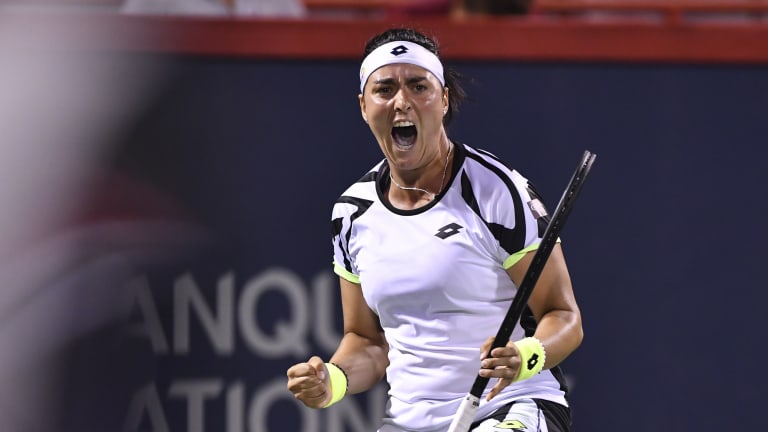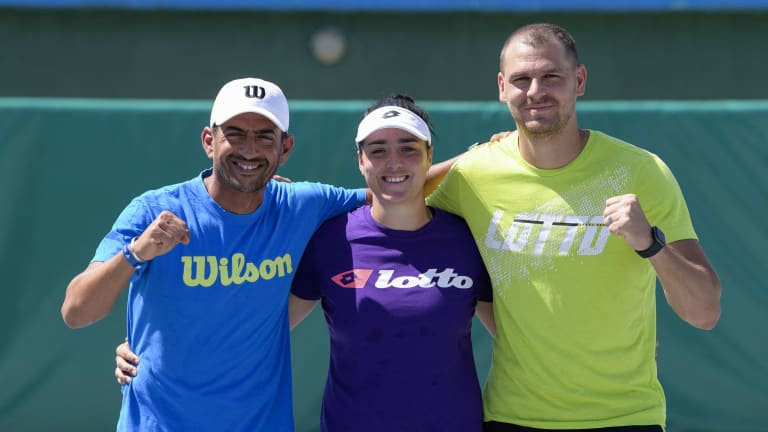A historic achievement was in the offing last week, when Ons Jabeur met Anett Kontaveit in the quarterfinals of the WTA 1000 tournament in Indian Wells. With a win, Jabeur would become the first Arab of either gender to earn a ranking tennis’ elite Top 10.
With Kontaveit serving at a key moment in the match, Jabeur butchered an opportunity to create a break point. She did not hurl her racquet in disgust, or turn and scream imprecations at her team. She did not bust out the woe-is-me grimace.
Jabeur hit the deck and, with form that would please a Marine Corps drill instructor, she cranked out a couple of perfect push-ups.
“It was a tough game,” Jabeur later said on Tennis Channel. “I had a chance to make a break point, but I lost it. I like to keep it with humor. When I'm joking and laughing, that's when I play good. I just wanted to laugh and do a few pushups.”
The anecdote tells a lot about Jabeur, a crafty 5’6” dynamo who leads the WTA in wins (48) and racquet wizardry. The Tunisian Trickster is indefatigable, her work ethic is unsurpassed and, in a profession that can be very tough on its best practitioners, she is the jocular jock, living the dream.
Jabeur went on to defeat Kontaveit that day. Although she lost in the semifinals, the breakthrough was assured, as she appeared at No. 8 in rankings yesterday morning. She also found herself in the thick of the hunt for a berth in the WTA Final, the year-end championships that will be played this year in Guadalajara, Mexico. Jabeur’s resolve and diligence paid off in a big way 2012, helping to lift her above even the expectations of many of her more ardent supporters.
“This is something that I've been wanting, maybe you knew me when I was 16,” Jabeur said in a Zoom press conference at Indian Wells. “Even before. I always wanted to get there, to be No. 1 in the world. Top 10 I know is the beginning.
“I know I deserve this place from a long time since I was playing well. But I want to prove that I deserve to be here, I deserve to be one of the Top 10 players.”

